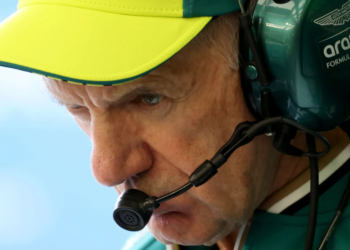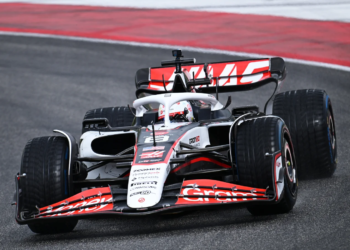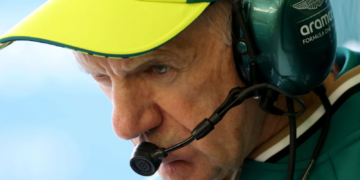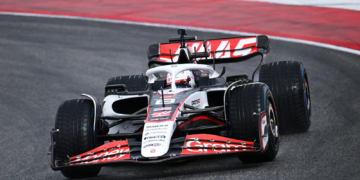“I think they know I love them and I hope we can do this for 10, 15 years together. There’s no reason to change, ever. I want to stay with them for the rest of my life. I hope they let me.”
Some of Max Verstappen’s first words as he climbed out of his car as a World Champion last December in Abu Dhabi were directed towards his future. He made it clear that he saw himself with Red Bull going forward.
It was an obvious situation to want in that moment, when the adrenaline was still running as he realised his childhood dream had been achieved. But, as Thursday morning’s announcement proved, it was not just a platitude.
Verstappen has committed to Red Bull Racing in a new five-year deal that will see him part of the team through 2028. His previous contract was set to expire at the end of the 2023.
It is a staggeringly-long extension, one that will likely solidify Red Bull and Verstappen as one of the most iconic team/driver partnerships in the sport’s history, regardless of future success. Already, so much has been achieved together on the track, with Verstappen securing 20 grand prix wins, 13 pole positions and 60 podiums since 2016, as well, of course, as last year’s title.

For Red Bull, the new deal gives it the reassurance that Verstappen won’t be poached away by a rival team. The Dutchman is still only 24 years of age, meaning he is undoubtedly the hottest property in F1 right now, given he has both youth and experience on his side, as well as proven title-winning abilities.
Should a fellow star such as Lewis Hamilton walk away from the sport at the end of 2023 when his current contract runs out, it’s hard to believe that Mercedes wouldn’t have looked at Verstappen as his replacement.
Verstappen possesses worldwide popularity and exceptional raw talent, which, aside from its on-track benefits, also creates an advantageous position for Red Bull on the side of marketing. It will be able to use him as a piece in talks with potential sponsors and future partners, talking him up as a giant of the sport and someone who the attention is always on.
It wouldn’t be false either, especially if Red Bull continues to produce race- and championship-winning cars. Across the past decade or so they have been one of only a few teams to consistently deliver at the sharp end of the grid. There will, of course, be clauses, but this is nonetheless a sizeable pledge from both parties.
The upcoming season will already be Verstappen’s eighth season in the sport, but by the time his latest contract expires, it’ll be his 14th campaign in F1, and he’ll be competing at the age of 31. He’ll be a veteran of the sport, around long after rivals such as Hamilton and Sebastian Vettel have likely moved on to pastures new.

On the assumption that F1 will host 23 races each year from now until the end of 2028, Verstappen will have raced almost 280 grands prix for Red Bull, likely making it the longest driver/team partnership of all time. For comparison, Michael Schumacher currently holds the record with Ferrari on 180 races, however Hamilton is on course to break that record at the third round of this year’s season with Mercedes.
Reports from his native Netherlands have indicated that Verstappen is being paid handsomely as part of the new contract, on account of delivering Red Bull its first Drivers’ title since the 2013 season. That financial hit for Red Bull will be assuaged somewhat by its recent deals signed with Oracle and Bitby, believed to be combined contributing three figures per season to the budget, in an era where spending is capped at $140m.
As they have done for many years now, Red Bull will shape its future around Verstappen and hope that it can construct the cars that deliver more World Championships.
As he enters the 2022 season with the number 1 associated with his car, Verstappen has made no secret of what he wants to achieve next with Red Bull.
“I love this team and last year was simply incredible, our goal since we came together in 2016 was to win the championship and we have done that, so now it’s about keeping the number one on the car long-term.”











Discussion about this post